Student Data Science Video Gallery – Summer 2019
[9:05] A. Chunnananda (Vassar College), R. Hageboeck (Washington and Lee University)
[9:05] A. Chunnananda (Vassar College), R. Hageboeck (Washington and Lee University)
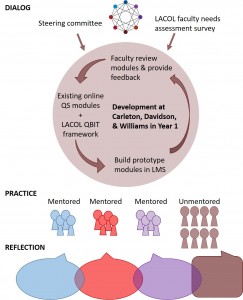 LACOL has been awarded an IUSE grant from National Science Foundation for a project titled, “Online modules for quantitative skill building: Exploring adaption and adoption across a consortium”. This three-year project will research the adaption and adoption of face-to-face and online pedagogies for teaching quantitative skills (QS) with the aim of improving understanding of best practices for the development of online modules to support students’ QS development.
LACOL has been awarded an IUSE grant from National Science Foundation for a project titled, “Online modules for quantitative skill building: Exploring adaption and adoption across a consortium”. This three-year project will research the adaption and adoption of face-to-face and online pedagogies for teaching quantitative skills (QS) with the aim of improving understanding of best practices for the development of online modules to support students’ QS development.
The project proposal was developed by Melissa Eblen-Zayas and Janet Russell of Carleton College and Laura Muller and Jonathan Leamon of Williams College based lessons learned from the QLAB pilot project.
Additional information about the project, including details about the project advisory board, a needs assessment survey for faculty, and opportunities for faculty and staff to get involved, will be be shared later this summer and into the fall through the QS Working Group Forum.
CLICK HERE TO SUBSCRIBE for ongoing news!
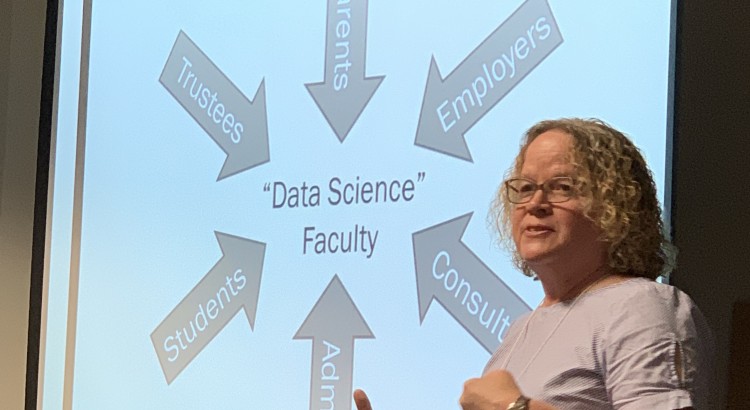
Event: Data Science in the Liberal Arts
Date & Location: June 6-7, 2019 at Washington and Lee University
Workshop Goals:
Attendees: members and friends of the LACOL DS+ working group
| Scroll down for workshop resources, slides, and video gallery |
Keynote Talk:
Data Journalism as a Liberal Art
Prof. Amelia McNamara
Department of Computer & Information Sciences
University of St. ThomasOne of the main ways the general public encounters products of data analysis is through journalism. Data journalists strive to explain complex stories using visualization, statistics, and heavy use of contextualization. As we incorporate data science into the liberal arts, data journalism provides a case study as a field in which the sciences and the humanities are consciously linked. In this talk, I’ll discuss the history of data journalism, how I see it fitting into a liberal arts framework, and experiences from a class I taught on data journalism.
More Workshop Talks and Resources:
1. R. DeVeaux – Data Science for All?
2. L. Heyer – Starting a Data Science Minor
In Summer 2019 …
Introduction to Data Science (co-taught course, shared digitally)
Learning Objectives:
Course Sequence:
Course Team: see course gateway
Presented May 22, 2019 at the Bryn Mawr Blended Learning Conference
Course Topics Include: Read More
 Event: Language Instruction Jam
Event: Language Instruction Jam
Location: Bryn Mawr College, Canaday Library
Date: March 23-24
Agenda: Language Jam Agenda
Attendees: Language Instruction working group and project teams
Full agenda & highlights:
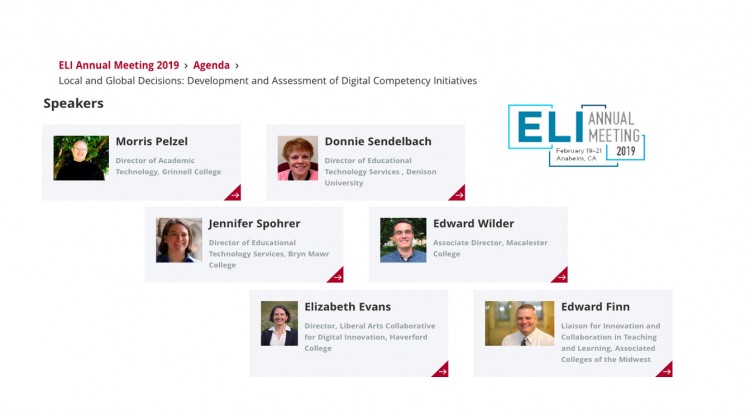
Event: Pre-Conference Liberal Arts Workshop at ELI (Session)
Title: Local and Global Decisions: Digital Competency Initiatives, Development and Assessment
Date: February 19, 2019
Venue: EDUCAUSE ELI Annual Conference
Location: Anaheim, California
Registration: Opens Nov 5
Time: 8am-11am PT
Facilitators:
Abstract: Digital competency initiatives begin from shared global objectives but must adapt to local culture and structures to succeed. Collaboration helps define needs and goals, but how can we collaboratively assess programs that adopt intensely local variations? In this pre-conference workshop, we will present multiple examples of program development with overlapping goals. After examining existing efforts on attendees’ campuses, they will develop plans for their own initiatives, considering local circumstances. We will then brainstorm with participants about how to collaboratively assess the impact of digital competency initiatives. Moreover, we will determine what evidence of impact would be meaningful to different stakeholders.
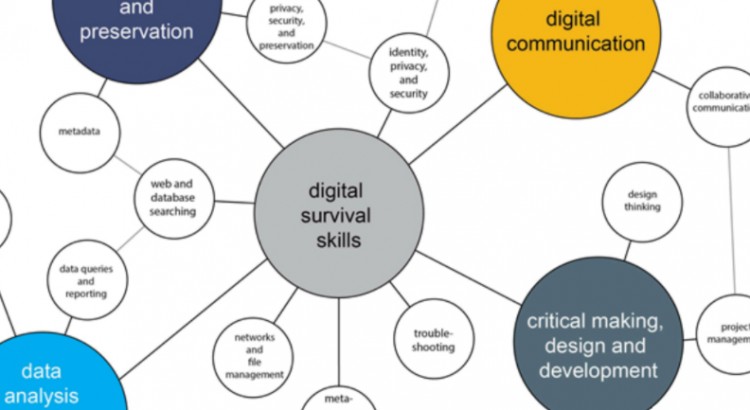
The LACOL Digital Competencies Working Group has formed to build on prior work related to Digital Competencies, Digital Studies, Digital Fluency, and Digital Literacy. These terms cover a group of related concepts, all of which reflect concepts and skills that are vital to the 21st Century learner and citizen … what we might call Digital Agility.
New Publication:
Digital Agility: Embracing a Holistic Approach to Digital Literacy in the Liberal Arts
by Beth Bohstedt and Sundi Richard (Jan 8, 2020, EDUCAUSEreview, Transforming Higher Ed.) This post, co-authored by Sundi and Beth, developed out of ongoing working group discussions in 2019.
The goals of the working group are to make concrete progress on ideas develop at the 2017 Think Tank and 2018 discussions. LACOL members are invited to join the group; reach out for more information!
Roadmap:
JANUARY 2019 – Create a statement about using the Bryn Mawr Digital Competencies Framework as the starting point for developing institution specific frameworks. Read More
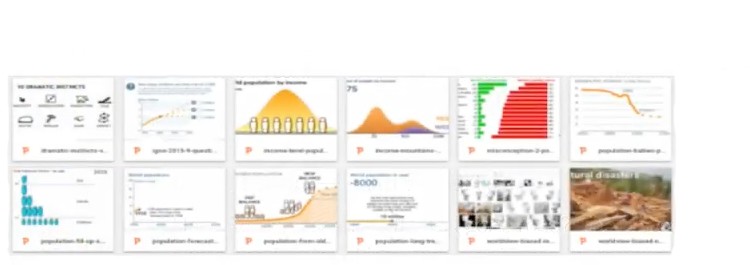
Event: Data Science: On ramps and scaffolds
Location: ZOOM web conference
Date: Friday, November 9
Time: 1:00-2:00pm Eastern
Discussion Leads:
⇒ Ming-Wen An, Assoc. Professor of Statistics, Vassar College
⇒ Ella Foster-Molina, Teaching Associate, Quantitative Skills Laboratory, Swarthmore College
Prework:
Related Event: Envisioning a “What is data science?” webinar for students (Oct 1, 2018)
Description: Following on from the lively July webinar focused on the NAS Data Science for Undergraduates report (nap.edu/25104), LACOL DS+ members are invited to join a follow up webinar .
Event: Envisioning a “What is data science?” webinar for students
Location: ZOOM web conference
Date: Monday, October 1
Time: 12:00 – 1:00 pm Eastern
Discussion Leads:
⇒ Deborah Gross, Professor of Chemistry, Carleton College
⇒ Helen White, Assoc. Professor of Chemistry and Environmental Studies, Haverford College
Prework: add your topic ideas HERE
Related Event: Data Science on ramps and scaffolds (Nov 9, 2018)
Description: Following on from the lively July webinar focused on the NAS Data Science for Undergraduates report (nap.edu/25104), LACOL DS+ members are invited to join a follow up webinar.
Read More
Convened by Chico Zimmerman and Clara Hardy (Carleton College), about a dozen faculty and technologists met at the workshop to make progress on ideas that emerged from several separate Zoom meetings in the two months preceding the conference. Eventually, the discussions centered on three main elements to focus on moving forward in the near term:
The CHIANTI site will continue to be built through the summer and populated with some initial resources for testing. A prototype submission form has been drafted and will be tested and finalized through the summer as well. The group will be soliciting contributions once these elements are finalized.
Read More
Event: Discussion of the NAS Data Science for Undergraduates Report
Location: ZOOM web conference
Date: Thursday, July 12
Time: 1:00 PM – 2:00 PM Eastern
Discussion Leader: Professor Nicholas Horton, Amherst College
Following on from the lively Data Science meets Environmental Studies meet up at the 2018 LACOL summer workshop, LACOL members are invited to join an online conversation to discuss faculty perspectives on the newly released Data Science for Undergraduates: Opportunities and Options report from the National Academies of Science. (More about the NAS report is here: http://nap.edu/25104)
Discussion of the report through a liberal arts lens will be lead by Dr. Nick Horton, Professor of Statistics at Amherst College. Nick served as contributor to the report on the Committee on Envisioning the Data Science Discipline: the Undergraduate Perspective. As he and colleagues at the summer workshop note, there is considerable potential to engage with each other as liberal arts colleges around curriculum development (see ASA Guideline, developed with AALAC) and other ways to support students learning to work with data.
Faculty and academic support specialists interested in data science education across the curriculum are encouraged to join this conversation!
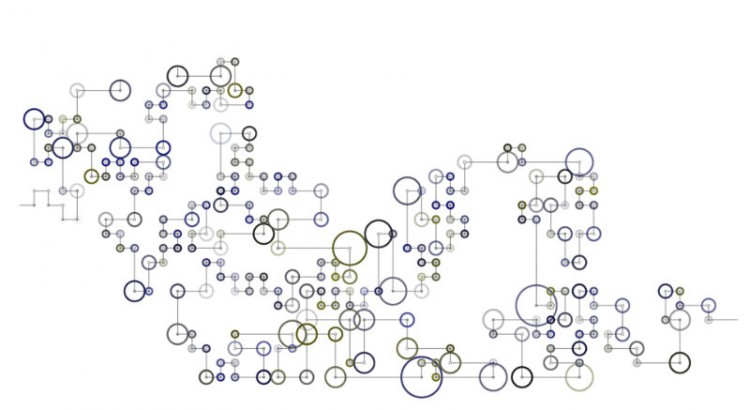
Based on conversations at the 2018 LACOL Summer Workshop, an active working group has emerged for Data Science, with a special interest in intersections with Environmental Studies as a data-intensive discipline.
Group Resource Page: Shared by/for Group Members (submit resources here.)
Areas of collaboration:
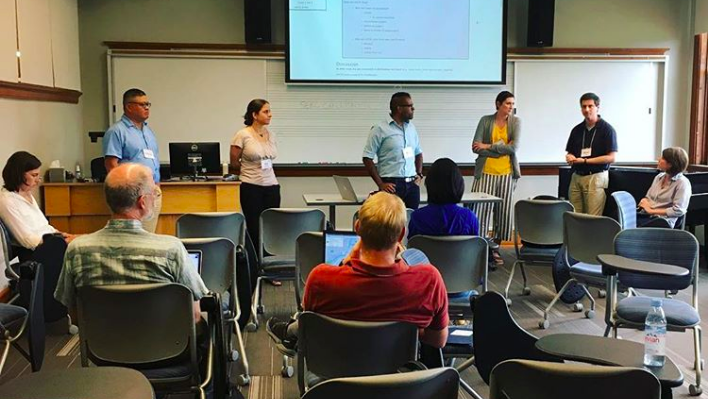
Workshop Track: Data Science meets Environmental Studies – Exploration
Facilitators:
Program: Session Agendas
Part 1: May 31, 9:30am, Weitz 136
Part 2: June 1, 10:30am, Weitz 230
OLI Discussion: May 31, 3:30pm, Weitz 136
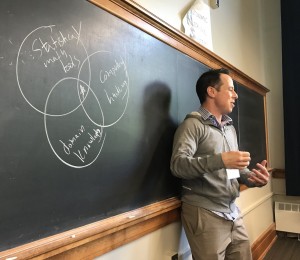 The intersection between Data Science and Environmental Studies is emerging as an area of focus for LACOL as we explore opportunities for collaboration around digitally engaged modes of teaching and learning for the liberal arts.
The intersection between Data Science and Environmental Studies is emerging as an area of focus for LACOL as we explore opportunities for collaboration around digitally engaged modes of teaching and learning for the liberal arts.
Several colleges are currently developing programming under the umbrella of Data Science, including critical algorithm studies, big data, data visualization, and data privacy/security. Meanwhile, most LACOL schools have a data-intensive Environmental Studies concentration or major. Interdisciplinary by nature, these areas of study challenge students to understand and work with data from many angles. Students engage in analysis, problem solving, critical thinking, and modes of argument that are deeply connected to social, cultural, political, and aesthetic ideas. Considering such programs, LACOL is thinking about ways that digital collaboration might enrich teaching and learning in this arena.
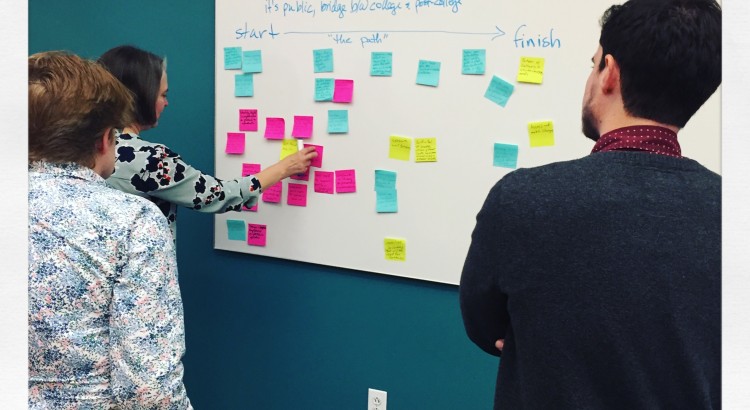
Session: Digital Competencies and Digital Studies
Discussion Leaders:
Date/Time: Thursday, May 31, 9:30am-10:30am
Location: Weitz 236
Pre-workshop activity/instructions: Group annotation of the BMC Framework
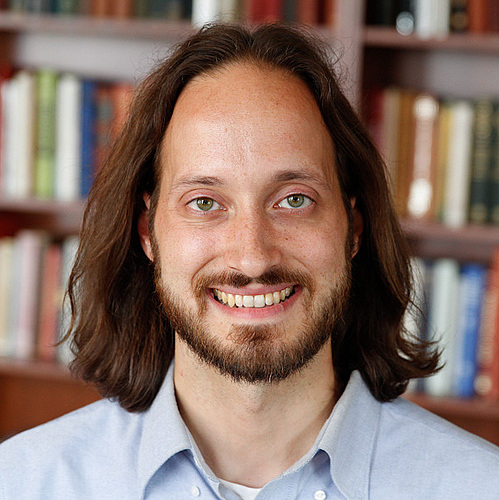
To build upon foundations laid at the Think Tank on Digital Competencies at Davidson College last fall, an interactive session exploring digital competencies and digital studies across the curriculum will be featured at the the 2018 Summer Workshop.
This discussion will focus on how digital competencies and digital studies programs connect with faculty priorities and practices for teaching and learning in the physical and virtual classroom and how digital competencies support and relate to other learning goals.
To approach these questions, Siesing and Mason will guide:
As input into this discussion, all workshop attendees are invited and encouraged to share reflections in advance by joining in the Group annotation of the BMC Framework.
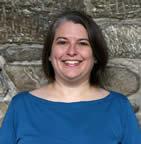
Session: How to blend a course – hands on
Lead presenter: Jennifer Spohrer, Director of Educational Technology Services, Bryn Mawr College
Date/Time: Friday, June 1, 10:30am-11:30am
Location: Weitz 131
This hands-on mini workshop will explore how and why faculty are motivated to blend their courses, even for their residential students on our campuses.
Related sessions at LACOL 2018:
To assist our students with readiness for their quantitative work across the curriculum, and to investigate the role that online resources may play in this, the Liberal Arts Collaborative for Digital Innovation (LACOL) has kicked off a multi-campus development and educational research initiative, nicknamed QLAB. The QLAB project provides a framework for creating a series of modules called Q-bits. Each online Q-bit module focuses on a particular quantitative skill or concepts and provides instructional and review content that is “wrapped” by pre/post knowledge and confidence checks, contextual guides, and applications problems in several disciplines. Read More